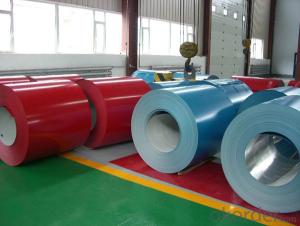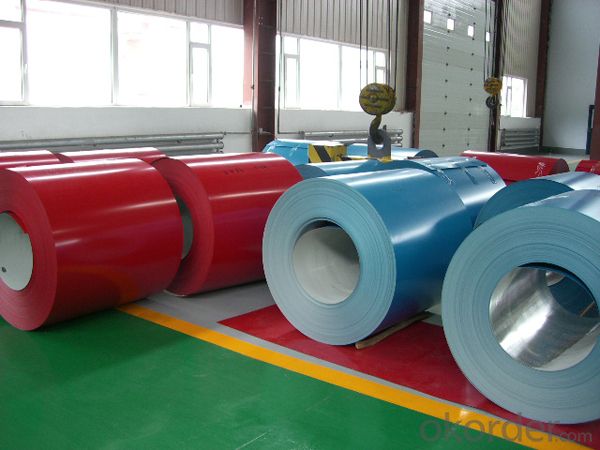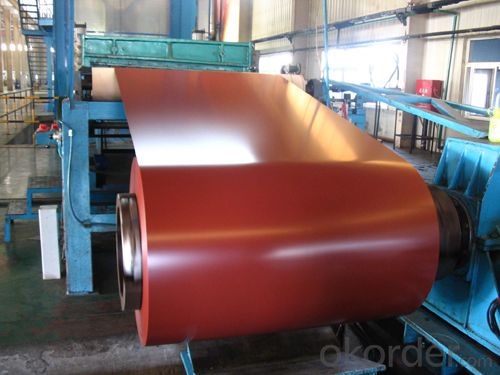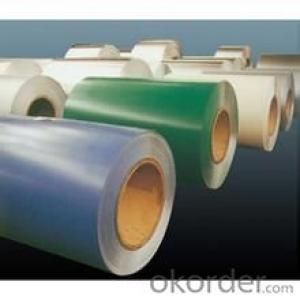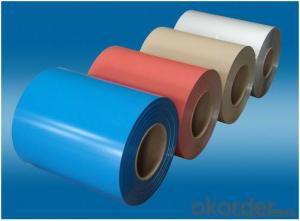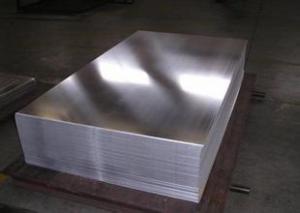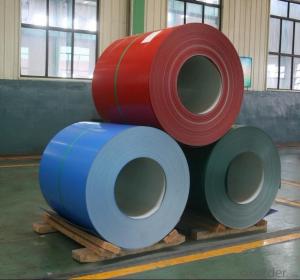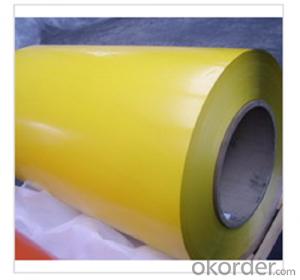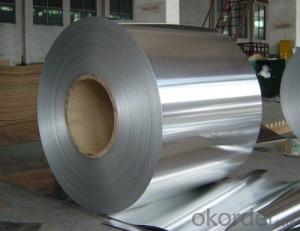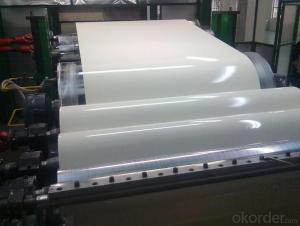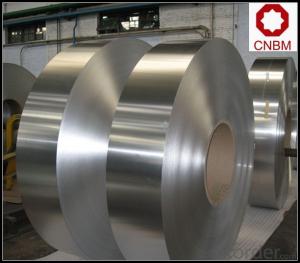Rollex 309 Aluminum Coil Stock Coated Aluminum Tape for Aluminum Cladding Panel
- Loading Port:
- Shanghai
- Payment Terms:
- TT OR LC
- Min Order Qty:
- 5 m.t.
- Supply Capability:
- 60000 m.t./month
OKorder Service Pledge
OKorder Financial Service
You Might Also Like
Specification
Coated Aluminium Tape for Aluminium Cladding Panel
Description
Alloy | 1060, 1100, 3003, 8011, etc. |
Temper | H16, H18, H24, H26, H28 |
Thickness | From 0.05mm to 3.0mm |
Width | Standard width:1240mm |
Special width:1300mm, 1520mm, 1570mm, 1595mm | |
Diameter | Standard dia:1200mm |
Interior dia:150mm,405mm,505mm | |
Weight | 2.5 T/coil,3.0 T/coil |
Coating | PE, PVDF, ACRYLIC |
Surface | Embossed, mill finish, coated |
Color | AS to code RAL |
Gloss | 10-90%(EN ISO-2813:1994) |
Coating Thickness | PE: more than 18 micron |
PVDF: more than 25 micron | |
Coating Hardness(pencil resistance) | More than 2h |
Coating adhesion | 5J (EN ISO-2409:1994) |
Impact Resistance | No peeling or cracking(50 kg/cm,ASTMD-2794:1993) |
Flexibility(T-bend) | 2T |
MEK resistance | More than 100 |
Advantage | 1.High temperature resistant 2.Weathering resistant 3.Scrubbing resistant 5.Acid or alkali proof 6. Fireproof 7.Light weight material is easy to construct and install |
Out package | Wooden splint with export standard |
Application | ACP, wall cladding, facades, roofs and canopies, ceilings, signboards, blind window, display platforms, electrical panels, etc |
Manufacturing
Decoiler → Accumulator →Tension Leveler →Acid & Alkali Cleaner → Rinse →Conversion Treatment → Priming coater →Infrared Curing Oven →Main coater →Floatation Curing Oven →Strippable Film Applicator → Exit Accumulator → Recoiler
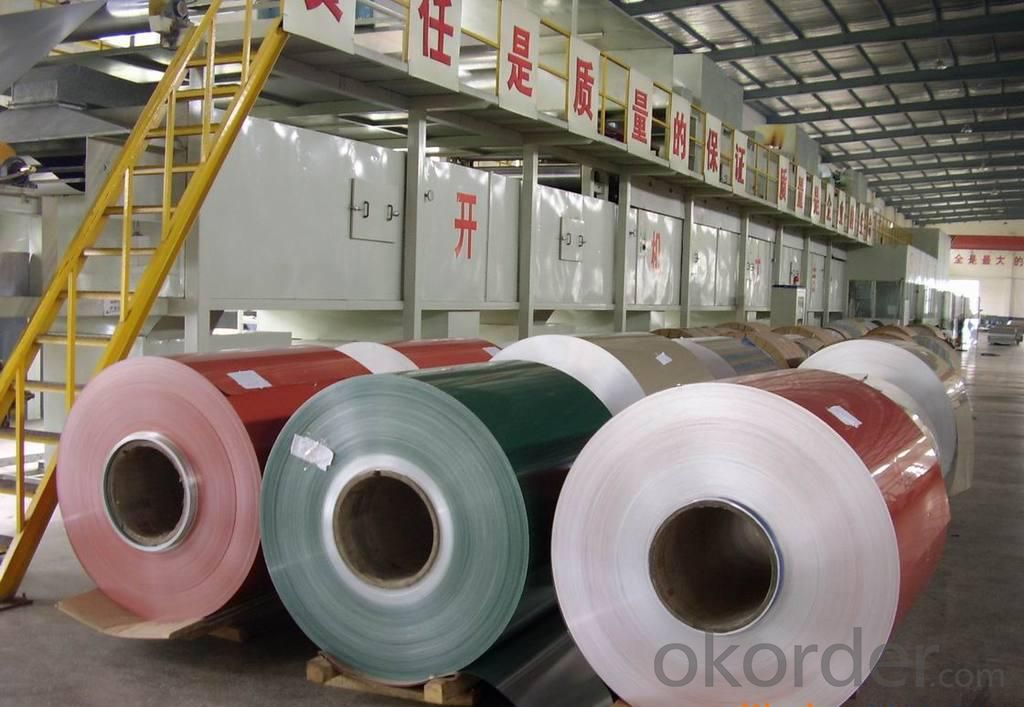
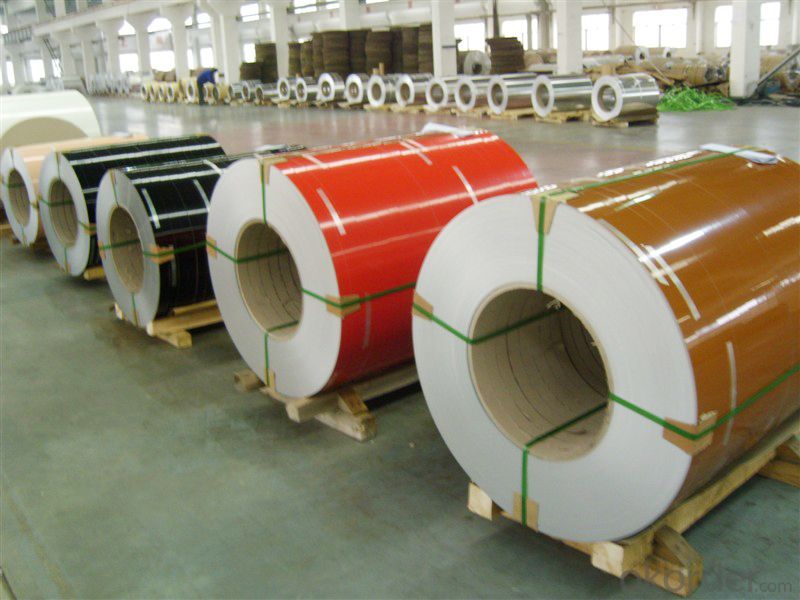
Polyester Coatings (PE)
PE (polyester) coatings exhibit an excellent combination of hardness, flexibility, flow, appearance, and superior resistance to dirt retention in indoor and outdoor applications. These coatings are highly resistant to abrasion, metal marking, staining, and marring, and require minimal maintenance. Glazetech uses polyester paints which provide excellent colour and gloss retention properties.
Polyvinylidene Fluoride Coatings (PVDF)
PVDF (polyvinylidene fluoride) is a chemical resistant thick film barrier coating commonly used in architectural applications where both excellent appearance and substrate protection must be maintained over a long period of time. This coating is unaffected by most chemicals and solvents and has excellent wear and abrasion resistance. PVDF also has a high dielectric strength, excellent resistance to weathering and the ability to self extinguish.
Application
Widely used in manufacturing of products as well as other industrial applications like:
Products Materials: PP cap stock, the traffic sign, air-conditioner heat and exchangers, food container, household foil, pharmaceutical packing, cigarettes packing etc.
Building Materials: aluminum curtain wall base plate, ACP, aluminum, ceilings, aluminum sheets, honeycomb panels and aluminum roofing, lighting decoration, household electrical appliances, food package (such as pop can cover & ring-pull), furniture ect.
FAQ
--Q: Do you provide free samples?
--A: Yes, free samples will be sent to you on freight at destination.
--Q: Can I get your latest products catalogue?
--A: Yes, it will be sent to you in no time.
--Q: What is the MOQ?
--A: 2 tons
--Q: What are your payment terms?
--A: We accept L/C, T/T.
--Q: What kinds of alloy can you supply?
--A: 1000 series: 1050, 1060, 1070, 1100, 1145, 1200
3000 series: 3003, 3004, 3105, 3104
5000 series: 5052, 5083, 5754, 5182
6000 series: 6061, 6063, 6062, 6063
8000 series: 8011, 8021
--Q: What kinds of temper can you supply?
--A: O-H112: O,H12,H14,H16,H18,H22,H24,H26,H,32,H34,H111,H112
T3, T4, T6
- Q: Can aluminum coils be used for architectural applications?
- Aluminum coils are indeed applicable for architectural purposes. With its versatility and lightweight nature, aluminum is an ideal material that boasts exceptional resistance against corrosion, making it suitable for numerous architectural applications. Exterior cladding, roofing, facades, and even interior uses like ceilings and wall panels can all benefit from the utilization of aluminum coils. These coils are easily malleable, cuttable, and moldable, allowing for flexibility in design and innovative architectural solutions. Moreover, aluminum coils can be coated with diverse finishes, such as paint or anodized coatings, to enhance both aesthetics and durability. All in all, due to their adaptability, durability, and aesthetic charm, aluminum coils are highly favored within the architectural industry.
- Q: What is the maximum length of aluminum coils?
- The maximum length of aluminum coils may vary due to multiple factors, including the specific manufacturing process, capabilities of equipment, and industry standards. However, in general, aluminum coils can range in length from a few hundred feet to several thousand feet. They find common use in applications like roofing, HVAC systems, and electrical wiring. Additionally, it should be noted that transportation and handling considerations may also impose limitations on the maximum length of aluminum coils.
- Q: What is the hardness of aluminum coils?
- The hardness of aluminum coils can vary depending on factors such as the alloy used and the specific manufacturing process. However, in general, aluminum coils are known for their relatively low hardness compared to other metals.
- Q: the ingredient on the back says aluminum?also ..what is sodium benzoate?Is all this stuff that terrible for you? Or does it mean something else?
- i have no idea why aluminum would be in pancake mix, but i know for sure that sodium benzonate is a preservative and it is bad for you
- Q: Is it possible to utilize aluminum coils in the automotive industry?
- <p>Yes, aluminum coils are widely used in the automotive industry. They are employed in various applications such as engine parts, heat exchangers, and body panels due to their lightweight, corrosion resistance, and high strength-to-weight ratio. Aluminum's recyclability and energy efficiency in production also contribute to its popularity in vehicle manufacturing.</p>
- Q: Can aluminum coils withstand high temperatures?
- Yes, aluminum coils can withstand high temperatures. Aluminum has a relatively high melting point of approximately 660 degrees Celsius (1220 degrees Fahrenheit). This makes it suitable for applications that involve high-temperature environments. Additionally, aluminum has excellent thermal conductivity, which allows it to dissipate heat efficiently. This property makes aluminum coils commonly used in heat exchangers and various heating applications. However, it is important to note that the specific temperature limit for aluminum coils may vary depending on the specific alloy and application.
- Q: Can aluminum coils be used in the production of cans?
- Yes, aluminum coils can be used in the production of cans. Aluminum coils are commonly used in the manufacturing process of cans due to their lightweight, durability, and corrosion resistance. These coils are typically shaped into sheets that are then formed into cans, making them a popular choice for the production of beverage and food containers.
- Q: What are the different sizes and dimensions of aluminum coils available?
- The specific industry and application determine the sizes and dimensions of aluminum coils, which can vary. Various widths, thicknesses, and lengths are generally available to cater to different needs. In the construction sector, aluminum coils are typically found in widths ranging from 24 to 60 inches. The thicknesses can vary from 0.019 to 0.040 inches. While the lengths of the coils can differ, standard lengths are usually around 100 feet or more. For industrial and manufacturing purposes, the sizes and dimensions of aluminum coils can be even more diverse. Coils wider than 60 inches are available for large-scale applications. The thicknesses can range from 0.006 inches for slim, lightweight coils to 0.250 inches for heavy-duty applications. Moreover, the dimensions of aluminum coils can be customized to meet specific requirements. Some manufacturers offer coil slitting services to cut coils into narrower widths, while others can provide custom lengths or thicknesses based on customer specifications. It is worth noting that the availability of different sizes and dimensions may vary among suppliers. Therefore, it is advisable to consult a reputable aluminum coil supplier or manufacturer to determine the specific sizes and dimensions they offer.
- Q: How do aluminum coils perform in corrosive environments?
- Aluminum coils perform exceptionally well in corrosive environments due to their inherent properties and protective coatings. Aluminum has a natural oxide layer that forms on its surface when exposed to air, creating a protective barrier against corrosion. This oxide layer is highly resistant to many corrosive agents, such as saltwater, acids, and atmospheric pollutants. Additionally, aluminum coils can be further protected with various coatings and treatments to enhance their resistance to corrosion. These coatings can include organic coatings, such as paint or lacquer, or inorganic coatings like anodizing or chemical conversion coatings. The combination of aluminum's natural oxide layer and additional protective coatings makes aluminum coils highly durable and reliable in corrosive environments. This resistance to corrosion is particularly beneficial in industries such as marine, chemical processing, and coastal applications, where exposure to saltwater or aggressive chemicals is common. Moreover, aluminum coils are lightweight, which adds to their versatility and ease of installation, making them suitable for a wide range of corrosive environments. This lightweight property also contributes to reducing transportation costs and energy consumption during installation. In summary, aluminum coils are well-suited for corrosive environments due to their natural corrosion resistance and the availability of protective coatings. Their durability, lightweight nature, and resistance to corrosion make them an optimal choice for various industries and applications, where longevity and performance are crucial factors.
- Q: Can aluminum coils be used for solar panel applications?
- Yes, aluminum coils can be used for solar panel applications. They are often utilized as the base material for solar panels due to their lightweight, corrosion-resistant, and durable properties. Additionally, aluminum coils offer good thermal conductivity, enabling efficient heat dissipation in solar panels.
Send your message to us
Rollex 309 Aluminum Coil Stock Coated Aluminum Tape for Aluminum Cladding Panel
- Loading Port:
- Shanghai
- Payment Terms:
- TT OR LC
- Min Order Qty:
- 5 m.t.
- Supply Capability:
- 60000 m.t./month
OKorder Service Pledge
OKorder Financial Service
Similar products
Hot products
Hot Searches
Related keywords
